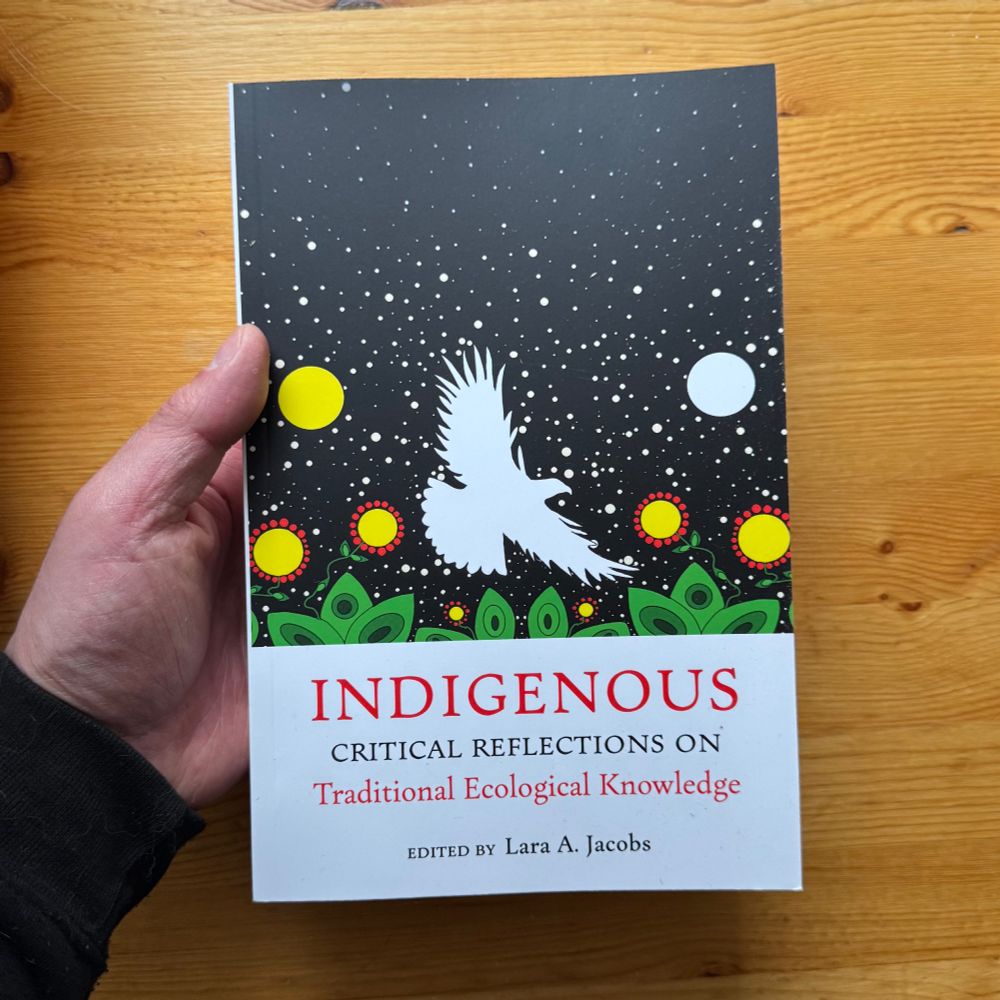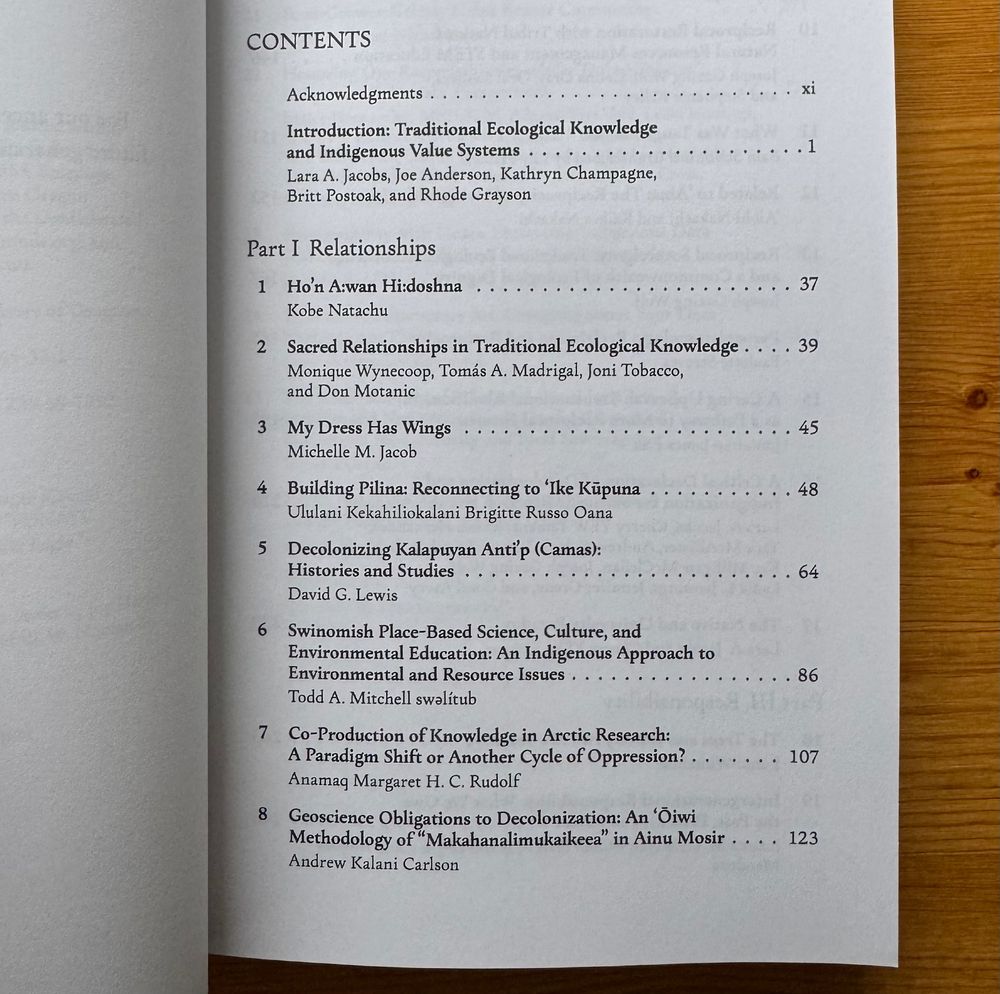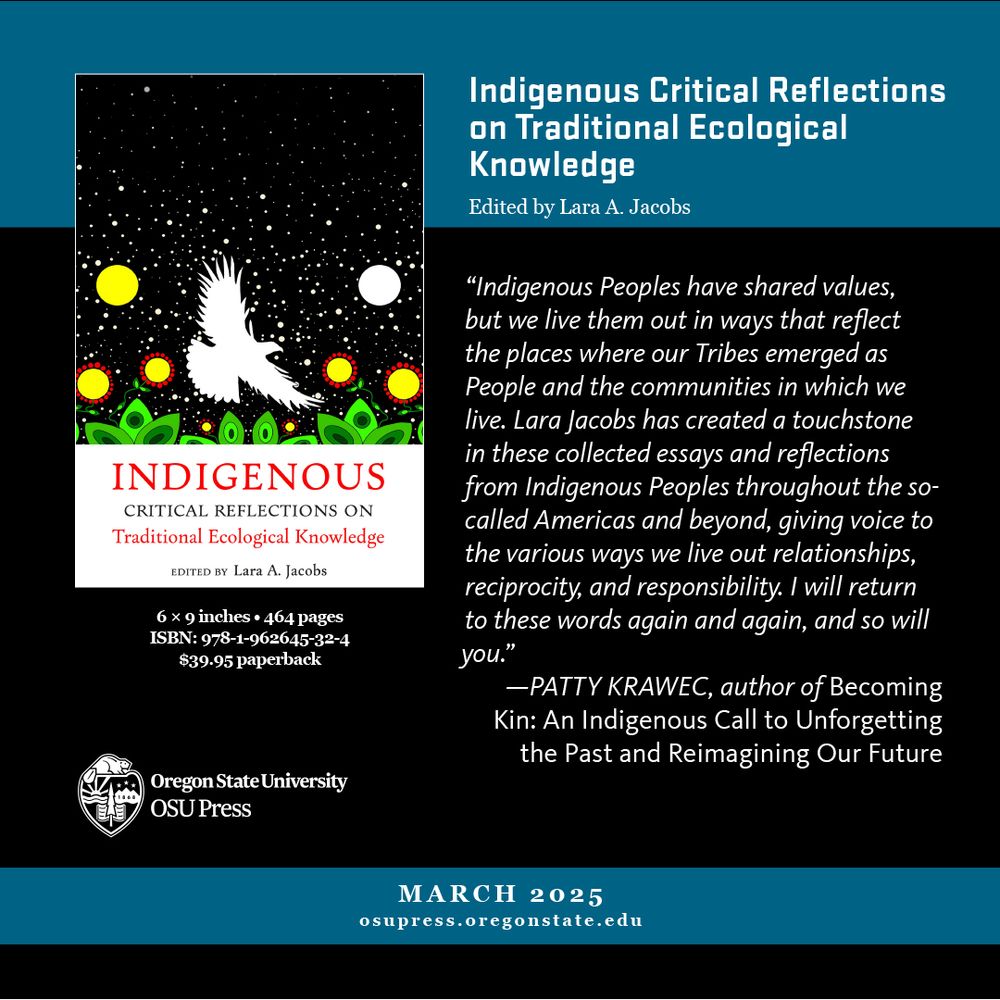
a hand holding up the paperback book, "Indigenous Critical Reflections on Traditional Ecological Knowledge". on the cover is an eagle silhouette in white in front of a starry background and above green stylized flower leaves and yellow flowers with red petals.

first page of table of contents of "Indigenous Critical Reflections on Traditional Ecological Knowledge" book. Chapter 6 is titled: Swinomish Place-based Science, Culture, and Environmental Education: An Indigenous Approach to Environmental and Resource Issues, By Todd A. Mitchell swəlítub, Page 86.

Indigenous Critical Reflections on Traditional Ecological Knowledge, Edited by Lara A. Jacobs. "Indigenous Peoples have shared values, but we live them out in ways that reflect the places where our Tribes emerged as People and the communities in which we live. Jacobs has created a touchstone in these collected essays and reflections from Indigenous Peoples throughout the so-called Americas and beyond, giving voice to the various ways we live out relationships, reciprocity, and responsibility. I will return to these words again and again, and so will you." -PATTY KRAWEC, author of Becoming Kin: An Indigenous Call to Unforgetting the Past and Reimagining Our Future With more than 50 contributors, this book offers important perspectives by Indigenous Peoples on TEK and Indigenous value systems. The book aims to educate and inspire readers about the importance of decolonizing how Indigenous Knowledges are considered and used outside of Native communities. By including the work of Indigenous storytellers, poets, and scholars from around the globe, Jacobs and chapter authors effectively explore the Indigenous value systems—relationships, reciprocity, and responsibility—that are fundamental to Indigenous Knowledge systems and cultures. Indigenous languages and positionality statements are featured for each of the contributors to frame their cultural and geographical background and to allow each Indigenous voice to lead discussions and contribute critical discourse to the literature on Indigenous Knowledges and value systems. By creating space for each of these individual voices, this volume challenges colonial extraction norms and highlights the importance of decolonial methods in understanding and protecting Indigenous Knowledges. This is an essential resource for students, academics, members of Tribal, state, and federal governments, Indigenous communities, and non-Indigenous allies as well as a valuable addition to environmental and Indigenous studies collections.
The paper on our indigenous science work at Swinomish has just arrived in the published book "Indigenous Critical Reflections on Traditional Ecological Knowledge"!
Thanks @ecohugger.bsky.social for getting this published! & thanks @kjrm.bsky.social for helping with all the work!
#IndigenousSTEM 🧪⚒️🍎
